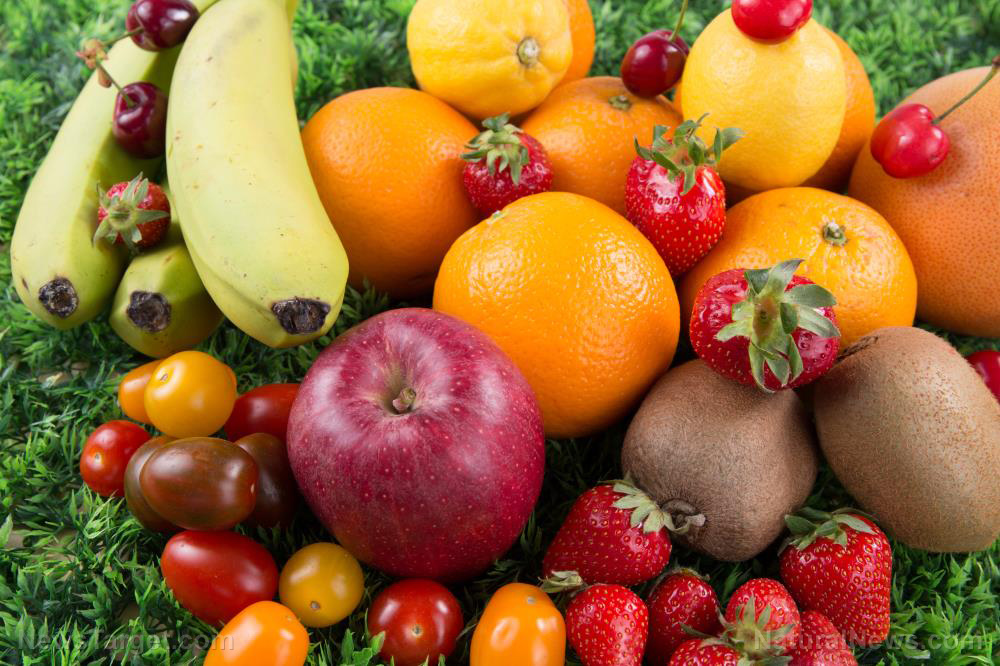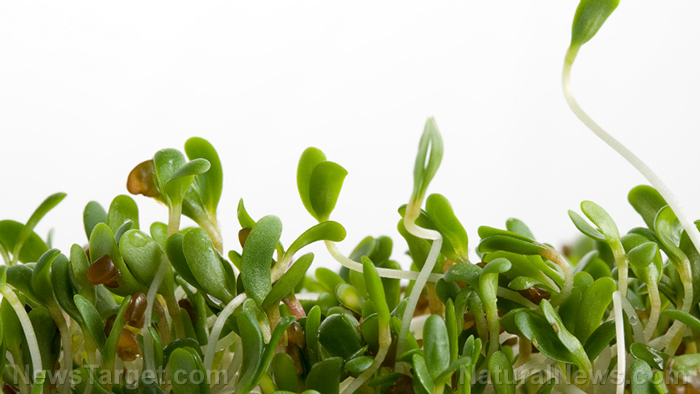Eat right to feel good: Your diet affects your gut bacteria, which then influence your health
06/03/2018 / By Carol Anderson

Experts could not emphasize enough how eating the right food is important to keep our bodies healthy and away from sickness. Even more so since there are types of gut bacteria found to be wreaking havoc inside our system once they find the right host or food to prey on.
One of these opportunistic bacteria is the Clostridium difficile (C. diff), which is said to be biding its time until the right moment comes to attack our bodies. These bacteria naturally live in our guts, and more often than not, we are also the ones responsible for giving them the chance to harm us with the food that we eat. (Related: The health of your gut microbiome could predict your risk of heart disease, researchers find.)
Dr. Michael Abt, Ph.D., assistant professor of Microbiology in Perelman School of Medicine – University of Pennsylvania said that food is as much an energy source for bacteria as it is for us. “Different types of bacteria thrive with different types of diet, so what you eat shapes the kind of bacteria that live in your gut. And the bacteria in your gut help determine whether C. diff is pathogenic or not,” he added.
For example, artificial sweeteners are proven to largely affect the microorganisms in our body. It appears that they are great food sources for bad bacteria such as Bacteroides. C. diff have been found to have an affinity for artificial sweeteners as well.
In 2000, many food companies replaced table sugar with a substitute called trehalose mainly because it’s cheaper, improves food texture, and has a more extended shelf life. A team of researchers led by Robert Britton from Baylor College of Medicine studied the correlation between the sugar substitute and the C. diff epidemic.
The power of the elements: Discover Colloidal Silver Mouthwash with quality, natural ingredients like Sangre de Drago sap, black walnut hulls, menthol crystals and more. Zero artificial sweeteners, colors or alcohol. Learn more at the Health Ranger Store and help support this news site.
They discovered that the virulent strains of C. diff are more widespread in our guts than the less virulent ones. This led the researchers to focus on various types of sugars and amino acids to find out which environment do virulent bacteria preferred. Results showed that ribotype 027 and 078 kinds of C. diff are more fond of trehalose.
Britton said that the fact that C. diff grows on trehalose has already been discovered in the 1980s. Although artificial sweeteners are not much of a thing back then, trehalose can naturally be found in foods like mushroom and shellfish.
In order to find out more about the harmful bacteria we host in our guts, researchers fed mice with C. diff strains with trehalose. It turned out that the infections were much worse, and the death rate was higher for the mice that were given the sweetener.
Meanwhile, Dr. Abt concluded that this is a “clear, practical example of diet shaping host health via intestinal bacteria.” He added that this gives us a better understanding of a cycle or an environment where dietary changes shape our gut bacteria, and how these bacteria work to shift our health and make us more prone to diseases like obesity and diabetes.
This only strengthens the argument that diet plays a vital role in optimizing our health.
Antibiotics can also trigger C. diff
Another common advantage that C. diff get is when we take antibiotics to treat some health conditions. While the medicine kills off the bad bacteria, it also wipes out many good bacteria living inside us, which makes the perfect environment for the opportunist bacteria to make their move.
According to the Centers for Disease Control and Prevention, around half a million people in the U.S. alone are affected by the painful intestinal infection caused by the bacteria’s toxins. Moreover, almost 30,000 deaths are recorded each year.
Currently, preventing the spread of C. diff among patients who take antibiotics is a national priority. Different health organizations have partnered to tackle the issue once and for all.
Learn more about the effects of artificial sweeteners to your body at Sweeteners.news now.
Sources included:
Tagged Under: added sugars, Antibiotics, artificial sweeteners, bacteria, bad bacteria, C. diff, Diets, digestion, digestive health, digestive system, good bacteria, gut bacteria, gut health, intestinal health, intestines, mind-body medicine, sugar addiction, sugar subsitute, trehalose




















